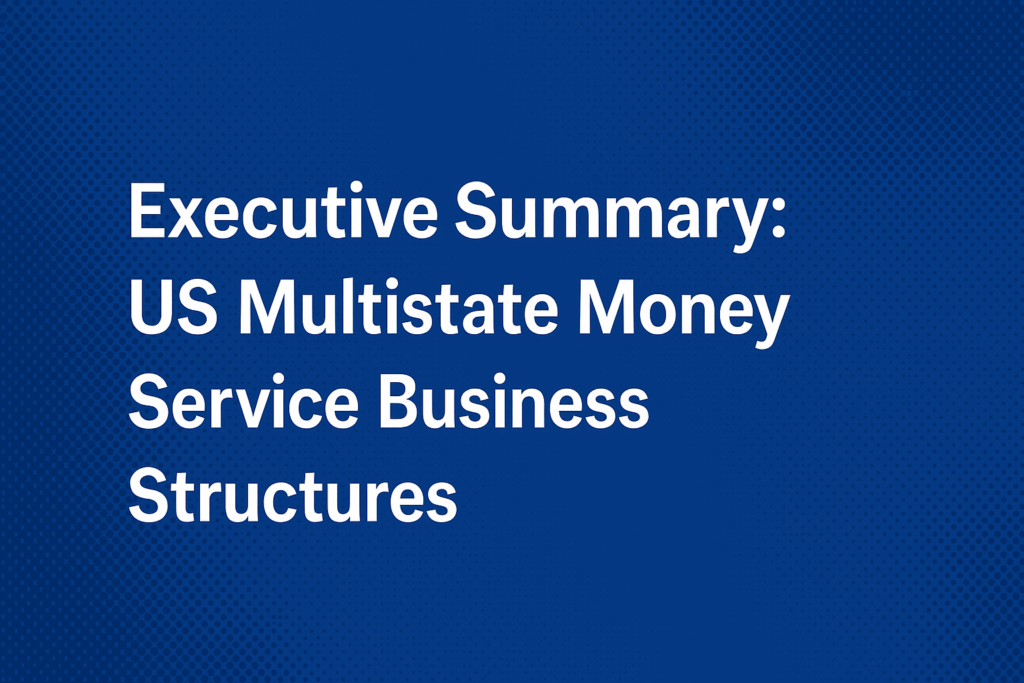Money Services Businesses (MSBs) are a vital component of the U.S. financial system. They enable payments, remittances, and digital finance solutions outside of traditional banking, and are heavily regulated at both federal and state levels.
Key Legal Framework
– Federal: MSBs must register with FinCEN and comply with the Bank Secrecy Act (BSA), including AML/KYC programs and suspicious activity reporting.
– State: Each state requires separate licensing, with net worth, bonding, and compliance obligations. Recent reforms under the Money Transmission Modernization Act (MTMA) are streamlining multistate licensing.
Common Uses of MSB Licenses
– Remittances & Cross-Border Transfers
– Digital Wallets & Stored Value Accounts
– Merchant Payment Processing
– Prepaid Cards & Credit Programs
– Crypto & Digital Asset Platforms
– Support for Lending-Adjacent Services
Why Businesses Choose the MSB Model
– Provides access to U.S. payment systems (ACH, wire, card rails)
– Enables rapid multi-state expansion
– Establishes credibility with banks, partners, and regulators
– Offers flexibility across financial products and services
Challenges
– High compliance and audit costs
– Complex multistate regulatory environment
– Difficulty accessing banking relationships
– Heightened regulatory scrutiny due to AML risks
Conclusion
MSBs provide essential financial services and are central to the fintech and payments industries. While the regulatory framework is demanding, MSBs remain a strategic path for companies seeking to operate in payments, remittances, and digital financial innovation in the United States.

